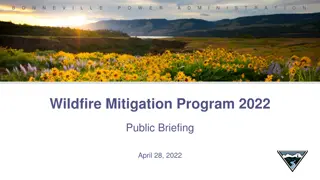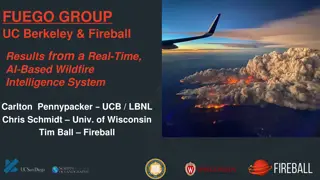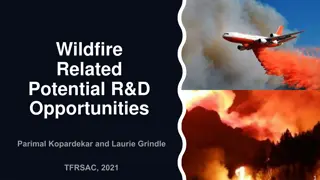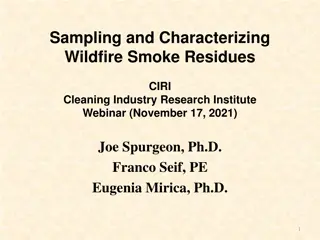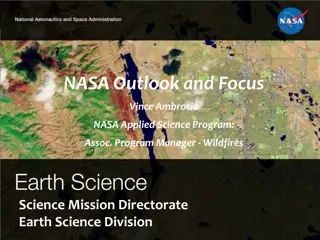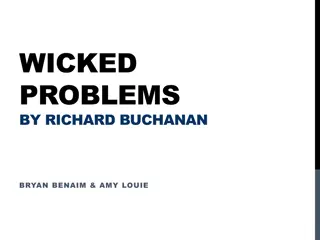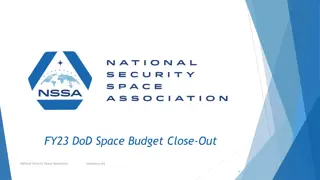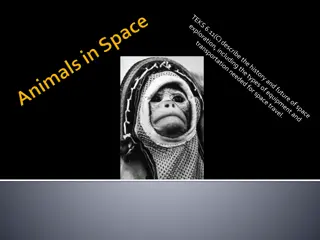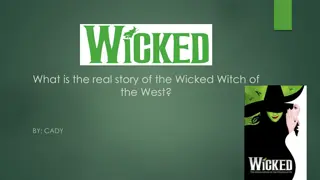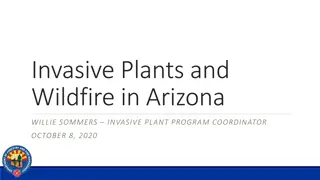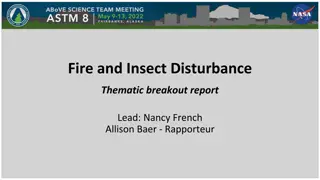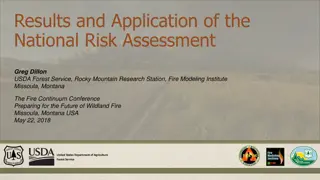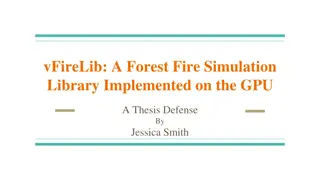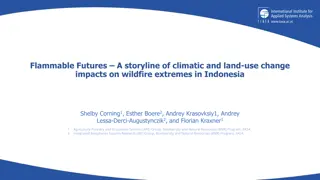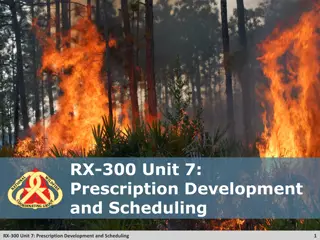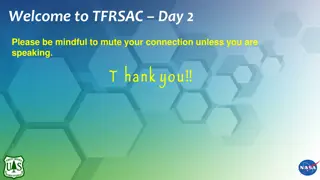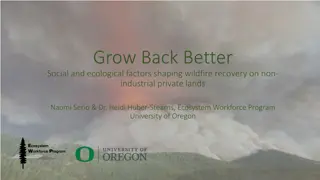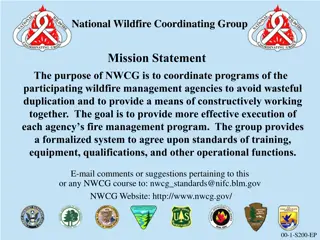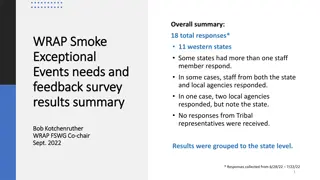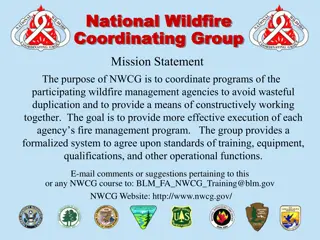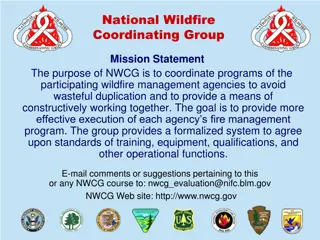The Wicked Wildfire Problem and Solution Space
This article discusses the increasing prevalence of megafires and the need for innovative solutions. It introduces the concept of WKID Innovation, a framework for systemic change, and presents recommendations for tactical fire management. Collaboration and deep dive studies are emphasized to address the complexity of the megafire problem.
- megafires
- WKID Innovation
- systemic change
- tactical fire management
- collaboration
- deep dive studies
- wildfire resilience
- innovative solutions
Download Presentation

Please find below an Image/Link to download the presentation.
The content on the website is provided AS IS for your information and personal use only. It may not be sold, licensed, or shared on other websites without obtaining consent from the author. Download presentation by click this link. If you encounter any issues during the download, it is possible that the publisher has removed the file from their server.
E N D
Presentation Transcript
The Wicked Wildfire Problem and Solution Space Figure by, Chuck Carter, Keck Institute for Space Studies Natasha Stavros, Pd.D. Fire Ecology Twitter/Instagram: @DrFireScience Director of CU Boulder Earth Lab Analytics Hub Natasha.Stavros@Colorado.edu Contributions from: Jennifer Balch (Director CU Boulder Earth Lab)
Whats the Problem? Megafires not Fires. We have always had fire, and we need fire. Relative Change in Biomass Burning Marlon et al. (2012) PNAS
Megafires are not new, but they are becoming more common
What is a Megafire? Sociopolitical term for the fires that matter Big fires matter for smoke Proximity matters for infrastructure Mietkiewicz et al. 2020; Balch et al. 2017
Fast fires matter for lives The 2018 California Camp Fire traveled 80 football fields/min It takes ~15 minutes for the average wildland fire to be reported in the United States ~45 minutes for fire management resources to be deployed to remote/hard to access locations The best resources in the world for suppression average production line rates of ~3200 ft/hr (~ km/hr) Management Options: Where do we evacuate What assets need protecting What do we do to protect them
Fires Have Three Ingredients Fire Regime Wildfire Flame Moritz et al. (2005) PNAS
When you put all those ingredients together the fires that matter are ones with high fire risk and we have a wicked problem Igelsias et al. (in prep) ERL
Wicked Problems need WKID Innovation Innovation is the change in process, method, or product. Solving wicked problems, that are defined by their varied solutions and multiple organizations involved, requires systemic change WKID Innovation (Stavros 2021) offers a framework for systemic change arguing that systems can be thought of in the context of the processes that define the interactions of: Hardware - infrastructure that supports it Software means of communicating People These processes are defined by the: Policies the rules that govern us Economics the markets for exchange Sociocultural Factors the social constructs under which we adhere, and the Technologies tools that we use
KISS Study: Innovating Detection and Tracking of the Fires that Matter To co-produce recommendations for change to tactical fire management of the fires that matter, the Keck Institute for Space Studies (KISS) hosted a workshop with key change agents from across industries and sectors:
Recommendations and next steps: Reached consensus despite each organization's self-interests and embodied co-production, a practice of working together across organizations to identify public services of value Focus was on pre/post fire to contextualize the fires that matter for tactical fire management, which centers the problem around current authority systems Follow-on workshops needed to do deep dive studies to scope the megafire problem more holistically thinking about the pre-/post- resilience planning in the context of our modern world Collaborate with diverse perspectives that build on millennia of traditional ecological knowledge from the Tribal Nations
Acknowledgements The authors thank the Keck Institute for Space Sciences (KISS), specifically Michele Judd and Maria Chatila, for hosting and organizing this workshop, and the Moore Foundation for their initial support to build the community in their 2019 workshop. The authors would like to acknowledge the intellectual input of all KISS Workshop Participants representing: NASA/USFS TFRSAC; NASA CFIRES; USFS GTAC; CEOS Fire pilot project, NOAA NWS Fire Weather, NOAA Fire and Smoke Hazard Mapping, CSA WildfireSat, CALFIRE/Tecnosylva/SDA FireGuard, Intterra, FireSat, California Forest Observatory, Fireball International, XPRIZE Fire Challenge, Minderoo Foundation Fire Shield, as well as California Natural Resources, EDF, Moore Foundation, Planet, ESRI, Google, L3 Harris, Ecliptic, OMB, CALFIRE, Moraga- Orinda Fire Protection District, AXA XL, CU Boulder, UMD, Caltech, Australian Space Agency, JPL, and Virgin Galactic.


